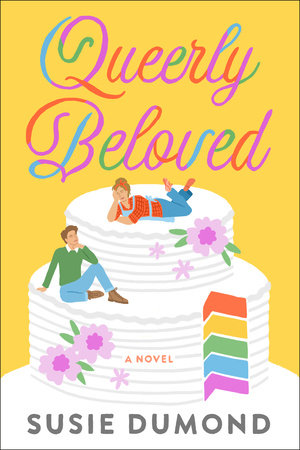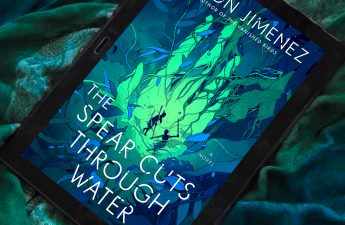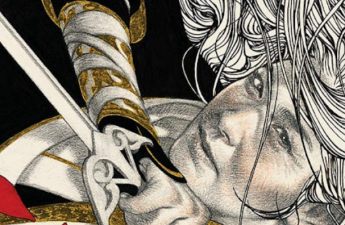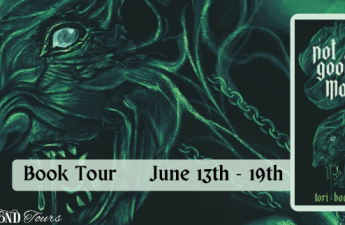Thank you to NetGalley, the publisher, and the author for letting me read an e-ARC of Queerly Beloved by Susie Dumond.
I was incredibly excited to read this book, I love to use romance novels as a palate cleanser to all the incredibly long fantasy and sci-fi books I usually read and a queer romance set in the bible belt felt wonderfully close to my experiences living in Missouri. Having said that, this book has been one of my biggest disappointments of the year.
There are so many problems with it that I’m going to have to split this review up into different parts to make sure I cover everything properly.
Genre
First off, this is not a romance. It might be advertised as one but there is no relationship development between Amy and her love interest Charley. They meet in the first chapter and proceed to go on dates every few chapters, instantly fall in love, and that’s it. Charley gets no character development and isn’t actually a very big part of Amy’s character development. I honestly think it would be more accurate to shelve this in historical fiction. For those of you that are still considering picking this up in hopes of some steamy scenes, look elsewhere, this is a fade to black book. Normally that wouldn’t be an issue for me but I was hoping to be distracted from the plot for a while.
Characters
We are essentially told who each of the characters are but never really get to see their individuality or personality shine through and those that do stay static throughout the entire book. Amy is introduced as a people-pleasing social chameleon but the main character that we actually get is very anxious and self-absorbed. When one of Amy’s friends calls her out for being selfish, she storms off and that friend eventually apologizes and says they were wrong. They weren’t. Amy spends so much time focused on herself that she comes close to even ruining some of the weddings she’s been hired for.
I still cannot tell Joel and Damian apart, it’s like the author was told that having a gay best friend is too cliche so her fix was to give Amy two gay best friends that are interchangeable. The characters of color exist to be woke in the background so that Amy doesn’t have to, she never confronts her privilege as a straight passing white lesbian while complaining about how hard it is to live in a red state. Charley, the love interest, gets zero character development; we know the same about her at the beginning of the book as we do at the end. She is completely absent for the majority of the book and the relationship between them is incredibly instalovey.
Plot
This plot wasn’t terrible. I think the main issue stems from the genre confusion. Romance follows a specific plotline with common beats, the meet-cute, the third-act break-up, the happily ever after, but this book can’t decide whether it’s a romance or not. So instead, it hits some of the right beats at the wrong time and skips others entirely. Amy’s journey from being a baker to being a bridesmaid is a bit of an odd one and at times it’s very clear that something happened because the author needed it to and not because it made any sense. Things between Charley and Amy were so lowkey that I feel like the third act break up happened more between her and the idea of marriage equality than between the two women.
Time Period
Queerly Beloved is set somewhere around 2013-2014 which can be extrapolated from the fact that it is described as mid-2010’s but same-sex marriage has not been federally legalized in the United States (something that is unnecessarily fixated on by almost all characters). I was baffled by the author’s decision to set the book during this period, especially when it is clear that this is a time that the author does not remember fondly. It never really makes sense and gives the book overall a very dated feeling. At times it literally felt like going backward in terms of representation, it so accurately achieved the feel of 2014 bible belt that I was waiting to get queerbaited the whole time.
The Bible belt is still difficult to navigate as a queer person in 2022, attitudes don’t automatically change because the Supreme Court said we could get married. The focus on marriage really reminded me of people that think same-sex marriage is the be-all and end-all of queer rights. Amy and her friends spend so much of this book complaining about the lack of marriage equality while doing absolutely nothing to change it which leaves me feeling oddly preached at despite the fact that this is not a major issue anymore. We as a community face so many more issues on the daily than whether or not we can get married that this book ends up feeling tone-deaf and ignorant. Not to say that marriage equality isn’t incredibly important, had this book been written in 2015 it would have made sense to focus on this groundbreaking ruling but it’s not 2015 and we are facing different issues.
Amy’s change of heart about marriage equality doesn’t seem to be her realizing that it is just another step in the right direction but her being upset that she isn’t immediately getting married and being fully accepted by everyone. Her expectations for everything feel unrealistic. The book seems to condemn the idea of staying closeted to work, Amy blames herself and feels ashamed about how she has to be closeted to work, even other characters tell her that she should come out when she isn’t sure how her bosses will react. She compares her situation in a very stereotypically feminine job to that of her butch girlfriend’s in a stereotypically masc job and then feels like a coward for not coming out. It is possible that the author is trying to make a comment to the opposite effect but it didn’t come across that way.



